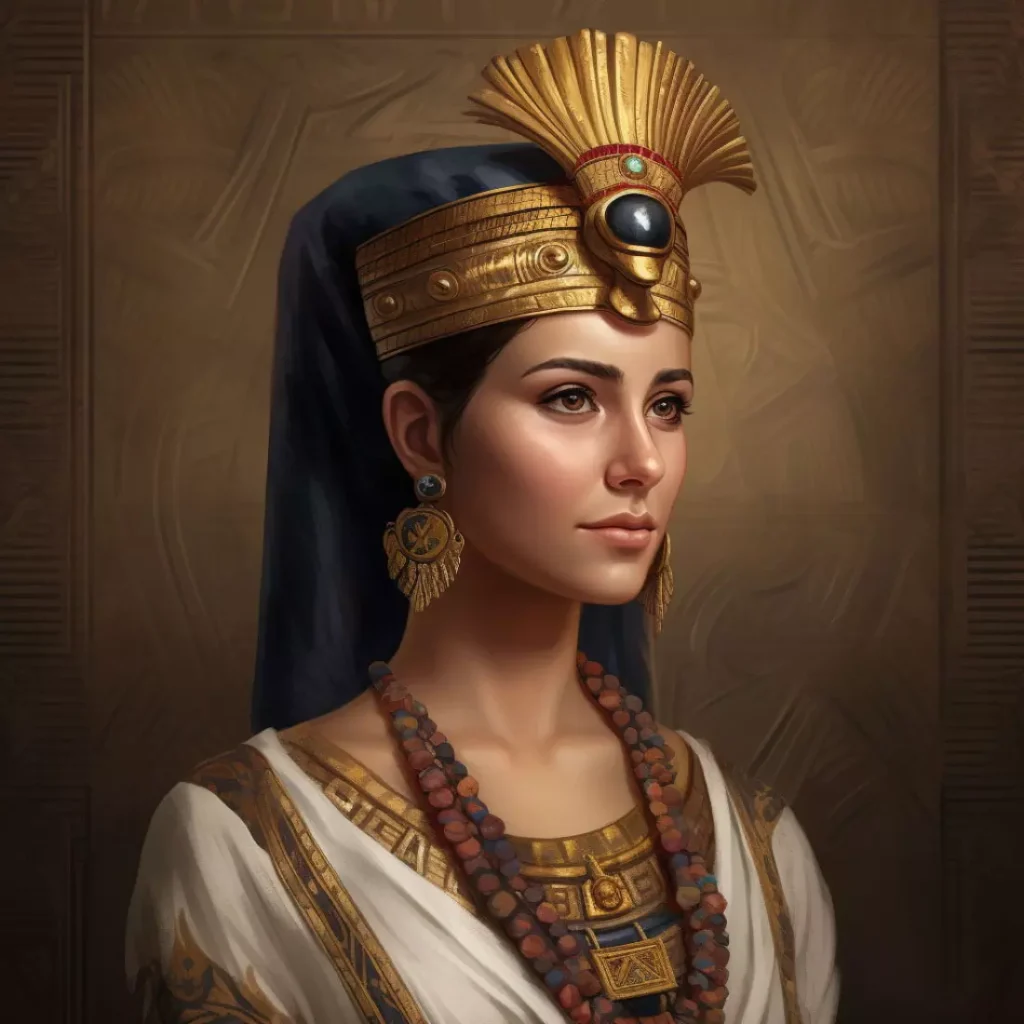Short About
Cleopatra was the last active pharaoh of Ancient Egypt, known for her intelligence, political acumen, and relationships with powerful Roman leaders.
Did you know?
Cleopatra was not Egyptian by ethnicity but was of Macedonian Greek descent, part of a dynasty that had ruled Egypt for nearly 300 years.
Net Worth
Estimated at $95.8 billion in 2014 USD, making her one of the wealthiest rulers in history.
Table of Information
| Attribute | Information |
| Profession | Pharaoh of Egypt |
| Age | 39 (at time of death) |
| Birthday | 69 BCE |
| Height (cm) | Unknown |
| Birthplace | Alexandria, Egypt |
| Net Worth | Estimated at $95.8 billion (2014 USD) |
| School | Unknown (likely educated by tutors) |
Early Life and Rise to Power
Birth and Family
Born in 69 BCE in Alexandria, Egypt, Cleopatra was a member of the Ptolemaic dynasty, a family of Macedonian Greek origin. She was the daughter of Ptolemy XII Auletes and likely Cleopatra V Tryphaena.
Education and Skills
Cleopatra received a comprehensive education, typical for Ptolemaic rulers. She was known to be:
- Multilingual, speaking as many as a dozen languages
- Well-versed in mathematics, astronomy, and philosophy
- Charismatic and politically astute
Ascension to the Throne
In 51 BCE, at the age of 18, Cleopatra became co-ruler of Egypt alongside her younger brother Ptolemy XIII.
Reign and Political Alliances
Relationship with Julius Caesar
Cleopatra formed a strategic alliance with Roman leader Julius Caesar in 48 BCE. This partnership helped her:
- Secure her position on the throne
- Expand Egypt’s influence
Alliance with Mark Antony
After Caesar’s assassination, Cleopatra aligned herself with Mark Antony, one of Rome’s triumvirs. Their relationship was both political and romantic, leading to the birth of three children.
Downfall and Death
Conflict with Octavian
The growing power of Cleopatra and Antony alarmed Octavian (later Augustus), who declared war on Egypt.
Death
Following their defeat at the Battle of Actium in 31 BCE, and Antony’s suicide, Cleopatra took her own life in 30 BCE, allegedly by allowing an asp (snake) to bite her.
Legacy and Cultural Impact
Cleopatra’s life and reign have had a lasting impact on history, literature, and popular culture. She is often portrayed as a:
- Symbol of female power and independence
- Tragic romantic figure
- Complex political leader
Recent Discoveries and Research
Recent archaeological and historical research has provided new insights into Cleopatra’s life and reign:
- Underwater excavations in Alexandria have uncovered artifacts from Cleopatra’s time
- DNA studies are being conducted to determine Cleopatra’s ethnic background
- New translations of ancient texts have shed light on her political strategies
Social Media (Hypothetical)
As an ancient historical figure, Cleopatra does not have social media accounts. However, her enduring popularity is reflected in numerous fan accounts and educational pages dedicated to her across various platforms.
Additional Factors

Demographics
- Time Period: Hellenistic Era / Late Roman Republic
- Nationality: Egyptian (of Greek descent)
- Social Class: Royalty
Interests and Lifestyle
- Politics and Diplomacy
- Arts and Sciences
- Luxury and Opulence
Psychographics
- Ambitious and Strategic
- Charismatic and Persuasive
- Culturally Sophisticated
Cleopatra Biography
Born in 69 BCE, ruled Egypt from 51-30 BCE, known for alliances with Julius Caesar and Mark Antony, died in 30 BCE.
Relationships
Most famous for her relationships with Julius Caesar and Mark Antony, which were both romantic and political alliances.
Appearance
Described as charismatic and beautiful, though ancient accounts focus more on her intelligence and charm than physical appearance.
Cultural Impact
Continues to be a popular figure in literature, film, and art, often symbolizing female power and exotic beauty.
Death
Died in 30 BCE, reportedly by suicide, possibly by inducing an asp to bite her.
Legacy
Remembered as the last pharaoh of Ancient Egypt and a symbol of the end of the Hellenistic period.
Archaeological Discoveries
Recent underwater excavations in Alexandria have uncovered artifacts from her reign, including potential remnants of her palace.
Historical Context
Ruled during a period of intense political turmoil, as Rome’s influence in the Mediterranean was expanding rapidly.
Cultural Significance
Represents a blend of Egyptian and Greek cultures, exemplifying the cosmopolitan nature of the Hellenistic world.
Education and Rhetoric
Highly educated in philosophy, sciences, and languages, known for her persuasive speech and intellectual abilities.

Ethan Richards is a seasoned writer and researcher with a flair for unraveling the mysteries of human personalities. With a keen eye for detail and a knack for simplifying complex ideas, Ethan brings clarity and insight to his readers.










